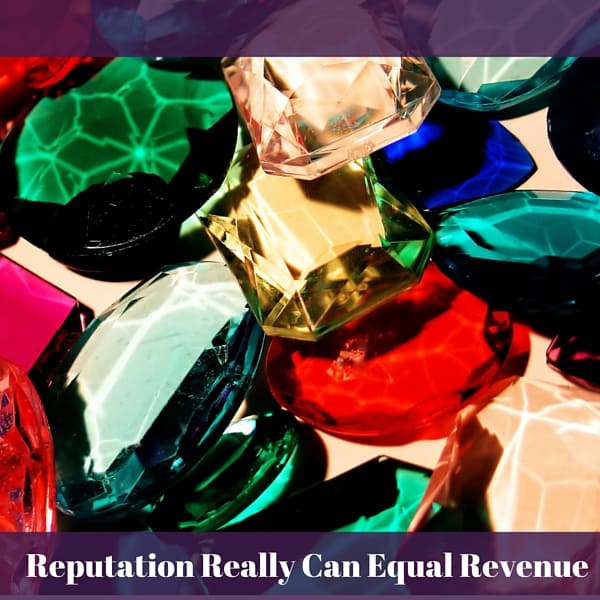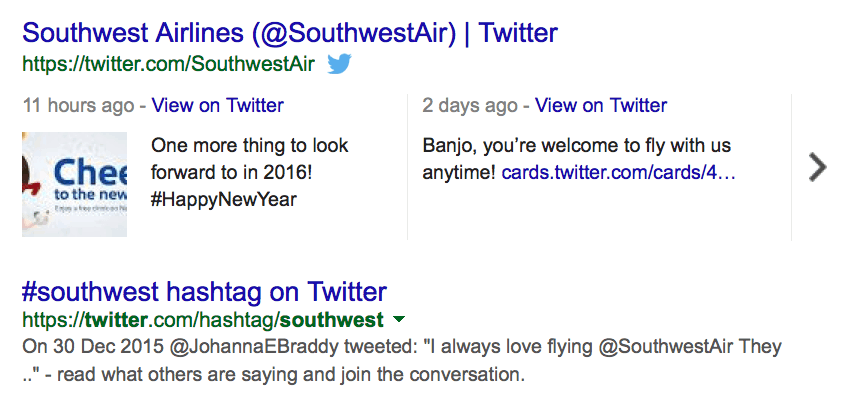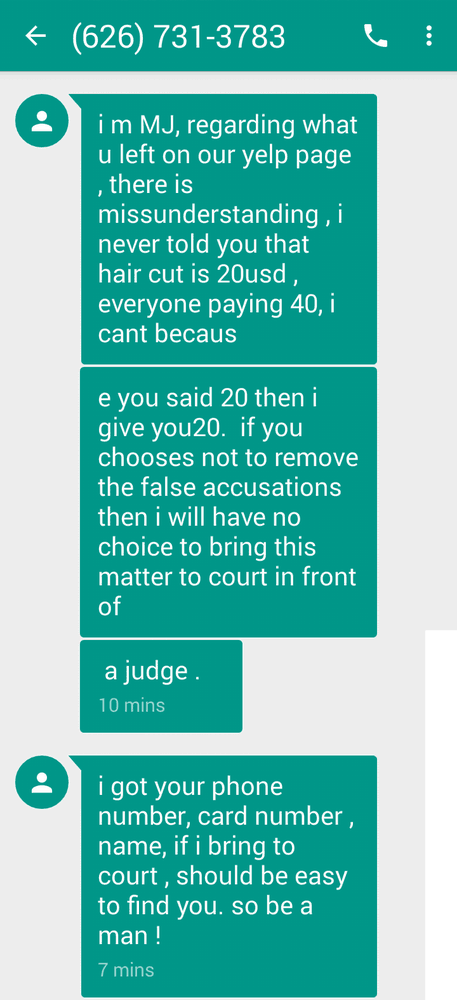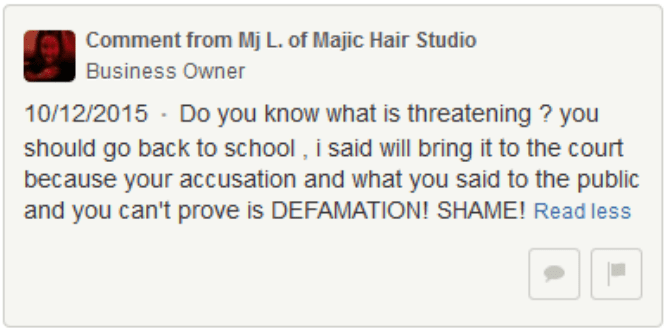
Editor’s Note: This is the introduction from Brodie’s forthcoming book, Reputation Equals Revenue.
Your company’s purpose is to provide products or services to customers and to support your employees, right? Obviously, it wouldn’t be able to accomplish this without sustained revenue growth.
Whether you represent a local business or a franchise, you’re not exempt from this cold hard truth— Your online reputation has a direct effect on your bottom line.
Simply put, the better your online reputation is, the more money you’ll make. And vice-versa. In other words, reputation equals revenue.
Admittedly, I’m focusing on just a single strategy here… reputation. There are hundreds of other ways you can boost your profitability, but reputation is the most important in the longevity of your revenue.
However, with over 15 years of generating online visibility for my own companies and clients, I have seen, time and again, nothing can assist or destroy a company’s profitability easier than its reputation.
The Good, the Bad, and the Ugly
Let me give you three quick examples of what I’m talking about.
First the good— Southwest Airlines
These guys are known for the relationship they have with their customers. I searched Twitter for the hashtag #southwest and this was the first non-commercial post that showed up at the top of the results:

And did you notice this tweet was liked 99 times, with 14 retweets?
This screenshot of a Google search I did for the Southwest Airlines exemplifies it even further:

Again, the same tweet shows up in the second position of page one on Google! Out of curiosity, I clicked on Johanna Braddy’s Twitter profile and discovered she’s an actress on the hit ABC show, “Quantico” with over 72,000 followers:

With the average Twitter user having only 208 followers, it’s safe to say Johanna is quite an influential person.
How would you like this type of free publicity for your own company? What do you think this does for Southwest’s reputation?
Now the bad— J.C. Penney
It’s not a matter of if, but a matter of when you’ll get negative online feedback.
A. You can’t please 100% of your customers, no matter how hard you try.
B. You’re likely to have competitors who are unethical enough to hire people who post untrue statements to try and hurt your reputation.
Take J.C. Penney, for example. I did a simple Google search for “jcpenney reviews” and check out the first result:

It doesn’t matter if these complaints are true or not.
Perception is reality and J.C. Penney has the resources to suppress these negative search results below more positive websites. Why they have not taken care of this is beyond me!
Whether you like it or not, you have an online reputation and it’s up to you to manage it.
Finally, the Ugly— Majic Hair Studio
Speaking of managing it, here’s a “how-not-to-do-it!”
Ji was a customer of MJ’s at the Majic Hair Studio. (Yes, that’s how they spell it.) Ji sums up his hair care experience in the first paragraph of his Yelp review:
Bait and switch nonsense. Unprofessionally late to appointments. Threatening me to remove review. Yuck.”
Again, I’m not concerned with whether or not Ji is being honest, here. What comes next is an example of how you should not handle negative feedback.
Prior to Ji leaving this review, he and MJ texted back and forth about the issue at hand. Ji was kind enough to include a screenshot of this conversation along with his Yelp review.

Surprisingly, the business owner responded to the review on Yelp with a threat, publicly, I might add:

And to make matters worse, the business owner continued the next day with this post:

I have to say it, just to be clear, publicly insulting a customer is asinine. And threatening them to take down a negative review is not the way to go about it. It may work, but you also run the risk of it going public.
Ugly, right?
What Your Customers See
According to GE Capital Retail Bank’s 2013 study, 81% of consumers do online research before making a purchase. Another survey we conducted at RevenueJump shows 54% of consumers have read online reviews before buying from a local business.
As I said earlier, you have an online reputation, no matter what. What kind of reputation are your customers finding online?
It’s also true that your reputation is either contributing to, or hurting your company’s profitability.
What’s nice is that you have control over this part! You just have to take these strategies and tactics to heart and put them into action.
Whether you represent a Fortune 500 company or a small, local business, you are more than capable of improving your company’s revenue and profitability by intelligently managing your online reputation.
If you’d like help along the way, please don’t hesitate to check out more posts on our blog and our resources section. You can also ask me questions in the comments and I’ll personally answer them right here.






